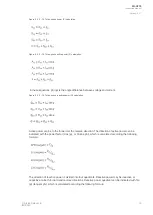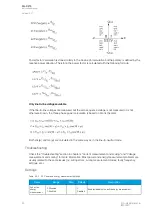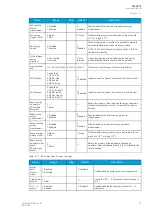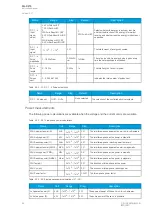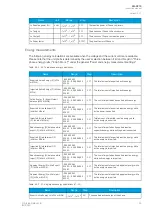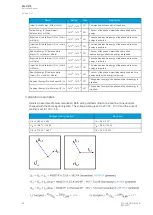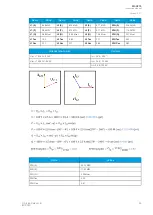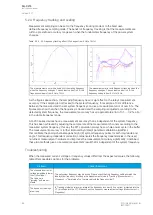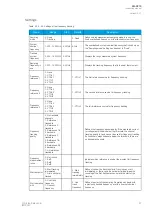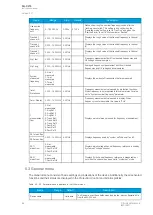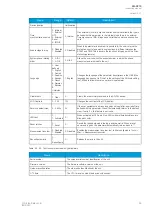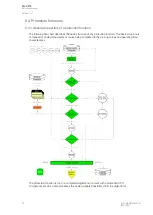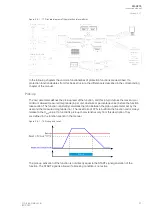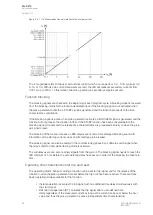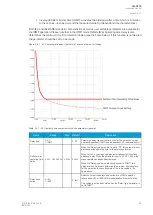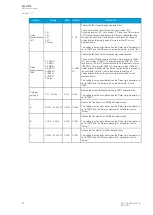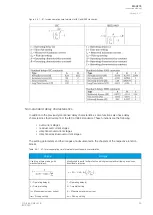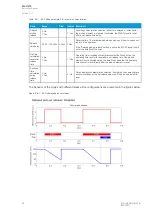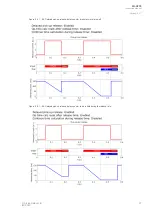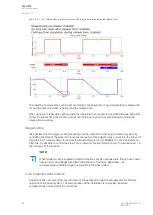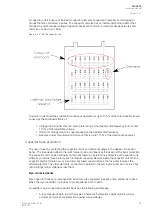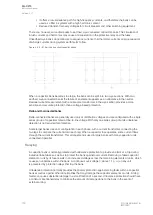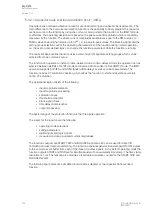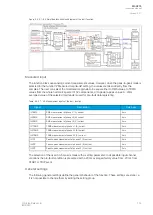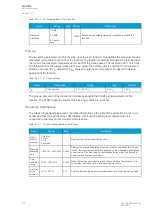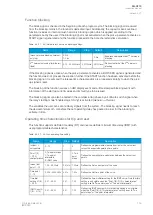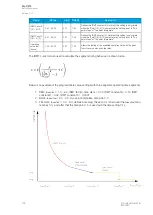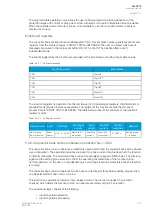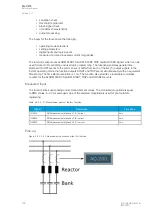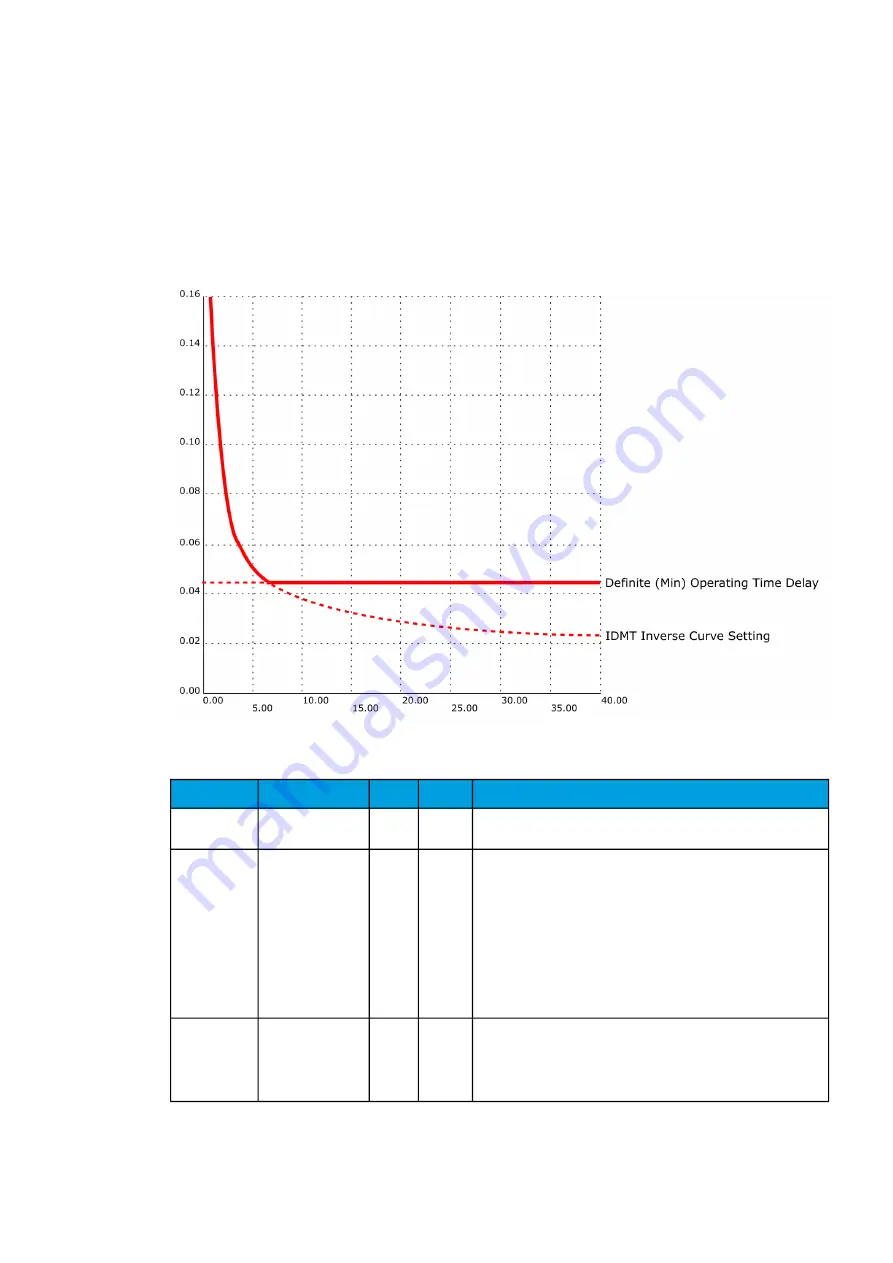
• Inverse definite minimum time (IDMT): activates the trip signal after a time which is in relation
to the set pick-up value
X
set
and the measured value
X
m
(dependent time characteristics).
Both IEC and IEEE/ANSI standard characteristics as well as user settable parameters are available for
the IDMT operation. Please note that in the IDMT mode
Definite (Min) operating time delay is also
determines the minimum time for protection tripping (see the figure below). If this function is not desired
the parameter should be set to 0 seconds.
Figure. 5.4.1 - 80. Operating time delay:
Definite (Min) and the minimum for tripping.
Table. 5.4.1 - 46. Operating time characteristics setting parameters (general).
Name
Range
Step
Default
Description
Delay type
0: DT
1: IDMT
-
0: DT
Selects the delay type for the time counter. The selection is made
between dependent (IDMT) and independent (DT) characteristics.
Definite (min)
operating time
delay
0.000…1800.000s 0.005s 0.040s
When the "Delay type" parameter is set to "DT", this parameter acts
as the expected operating time for the protection function.
When set to 0 s, the stage operates instantaneously without any
additional delay. When the parameter is set to 0.005...1800 s, the
stage operates as independent delayed.
When the "Delay type" parameter has been set to "IDMT", this
parameter can be used to determine the minimum operating time
for the protection function. Example of this is presented in the
figure above.
Delay curve
series
0: IEC
1: IEEE
-
0: IEC
Selects whether the delay curve series for an IDMT operation
follows either IEC or IEEE/ANSI standard defined characteristics.
This setting is active and visible when the "Delay type" parameter is
set to "IDMT".
A
AQ
Q-C215
-C215
Instruction manual
Version: 2.07
© Arcteq Relays Ltd
IM00040
93

